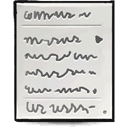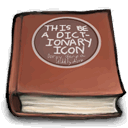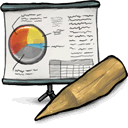European Team Chess Championship

The idea of European Team Championship was raised in early 1950s. Chess was little commercialized those years and there was a need to fill odd non-Olympic years with another international team event. The format adopted was a number of qualifying groups and a round robin championship final. The premier edition took off in 1955 as games in four preliminary groups started. Four group winners went through; Hungary were major absentees. USSR won the championship final although they lost 4-6 to Yugoslavia on the last day — which is one of their two match losses ever conceded in a 10 board international match. Number of participating nations was extended to six just four years later making enough space for all European top nations. USSR retained the title and Yugoslavia came second hammering Hungary 8-2 in the last round's fight for silver. In 1965 USSR won their third consecutive title and Yugoslavia took silver by virtue of mere 7 board coefficient points (from about 2800 total) — the smallest margin ever. Hungary came just third winning 9 matches of 10, including a win over the Soviets. Another major format alteration happened in 1970 (which was due in 1969 according to a four year cycle but was postponed). Number of participants was enlarged to eight, but double round robin was abolished replaced with the single round robin competition. A sensation happened in group 2 as Denmark edged out favoured West German team. Yet another trophy was comfortably grabbed by the Soviets. Hungary came second (at last). Bronze went to surprise East Germany who outpaced poorly performing Yugoslav team.
Unfortunately East Germany failed to make it to the 1973 final outwitted by Poland. Same story happened to Czechoslovakia who came behind West Germany in respective preliminary group. The seeding system in the preliminaries was heavily criticized as some teams (Yugoslavia, Hungary) had exceptionally easy opposition while others, like the ones mentioned previously, had to struggle to pick championship spots. There was another format change that year as number of boards was reduced to 8. The 5th final of the European Championship in Bath brought yet another gold medal to the Soviets, Yugoslavia were back in second. Poland won fourth place which was an immense success for them and they really could not go any further. The Netherlands were the losers of the preliminaries of the sixth edition losing to England for the second time in a row, which happened to be their fourth consecutive unsuccessful approach to the finals. The finals played in Moscow saw the iron trio again on top, moreover set up in a standard pattern: USSR, Hungary, Yugoslavia. Romania were the surprise of the event deservedly picking fourth position. From then on the gaps between consecutive events were shortened from four to three years. The 7th championship was awarded to Sweden, who surprisingly qualified at the cost of Romania who they wiped out in preliminaries by sensational 6½-1½. West Germany were unlucky losers as they failed to qualify despite winning both qualification matches. USSR won again (but, unlike three previous editions, they did not manage to win all 7 matches) ahead of Hungary. The host side produced a 4½-3½ opening shocker vs Hungary but finished last anyway. The 1983 edition held in Plovdiv, Bulgaria was won by (you wouldn't guess) USSR ahead of Yugoslavia and Hungary.
The 1986 edition was cancelled and there were no preliminaries before Haifa 1989 championship because of radical system change: the Swiss system was introduced with number of boards reduced to six due to obvious financial burden imposed on anyone willing to host some +40 nations, each one fielding 8 players plus substitutes. The Soviets won their ninth consecutive title ahead of Yugoslavia, who came second on six occasions. West Germany took bronze and Finland came fourth producing arguably biggest sensation ever seen at the European Team Championship (to some extend, it was just a matter of luck so important in Swiss). The 1992 edition will be remembered as a triple landmark: not only women had their own championship for the first time and the number of boards was finally fixed at four, but we also saw a bunch of post-Communist nations emerge after collapse of USSR and Yugoslavia. Yugoslavia (which wasn't an all-Balkan giant any more, just a federation of Serbia and Montenegro), who were banned from all sport activities due to UN embargo imposed on Milošević's regime, were allowed to enter the competition but were expelled after round one, causing the radioactive political cloud pollute the sky once more. Russia led by Kasparov took the gold ahead of Ukraine (Ivanchuk) and England (Short). There was no competition in 1995, instead the cycle was shortened once again to two years, thus it was planned to take place every odd year. In 1997 England made history becoming the first ever non-Russian team to take the title. It must not be suppressed though that Russian team was very far from their best potential selection. Armenia won in 1999 in Georgia ahead of Hungary. The 13th edition in Spain was comfortably won by Holland who edged France and Germany (Russia were absent!). The Bulgarian city of Plovdiv was the first to be honoured to host the finals for the second time in 2003. For the first time teams were sorted according to match points rather than game points as usual. Russia were back on top ahead of Israel. The 15th edition was played in Sweden and was won by powerful Dutch team. Israel came second while France picked bronze medals after vibrant finish. Russia finished in dismal 14th which was the biggest disaster they ever suffered in an international team's event. Next edition is due in Greece in 2007.
Winners (1957-2011): 9x Soviet Union, 3x Russia, 2x Netherlands, 1x England, 1x Armenia, 1x Azerbaijan, 1x Germany
 The idea of European Team Championship was raised in early 1950s. Chess was little commercialized those years and there was a need to fill odd non-Olympic years with another international team event. The format adopted was a number of qualifying groups and a round robin championship final. The premier edition took off in 1955 as games in four preliminary groups started. Four group winners went through; Hungary were major absentees. USSR won the championship final although they lost 4-6 to Yugoslavia on the last day — which is one of their two match losses ever conceded in a 10 board international match. Number of participating nations was extended to six just four years later making enough space for all European top nations. USSR retained the title and Yugoslavia came second hammering Hungary 8-2 in the last round's fight for silver. In 1965 USSR won their third consecutive title and Yugoslavia took silver by virtue of mere 7 board coefficient points (from about 2800 total) — the smallest margin ever. Hungary came just third winning 9 matches of 10, including a win over the Soviets. Another major format alteration happened in 1970 (which was due in 1969 according to a four year cycle but was postponed). Number of participants was enlarged to eight, but double round robin was abolished replaced with the single round robin competition. A sensation happened in group 2 as Denmark edged out favoured West German team. Yet another trophy was comfortably grabbed by the Soviets. Hungary came second (at last). Bronze went to surprise East Germany who outpaced poorly performing Yugoslav team.
The idea of European Team Championship was raised in early 1950s. Chess was little commercialized those years and there was a need to fill odd non-Olympic years with another international team event. The format adopted was a number of qualifying groups and a round robin championship final. The premier edition took off in 1955 as games in four preliminary groups started. Four group winners went through; Hungary were major absentees. USSR won the championship final although they lost 4-6 to Yugoslavia on the last day — which is one of their two match losses ever conceded in a 10 board international match. Number of participating nations was extended to six just four years later making enough space for all European top nations. USSR retained the title and Yugoslavia came second hammering Hungary 8-2 in the last round's fight for silver. In 1965 USSR won their third consecutive title and Yugoslavia took silver by virtue of mere 7 board coefficient points (from about 2800 total) — the smallest margin ever. Hungary came just third winning 9 matches of 10, including a win over the Soviets. Another major format alteration happened in 1970 (which was due in 1969 according to a four year cycle but was postponed). Number of participants was enlarged to eight, but double round robin was abolished replaced with the single round robin competition. A sensation happened in group 2 as Denmark edged out favoured West German team. Yet another trophy was comfortably grabbed by the Soviets. Hungary came second (at last). Bronze went to surprise East Germany who outpaced poorly performing Yugoslav team. 


